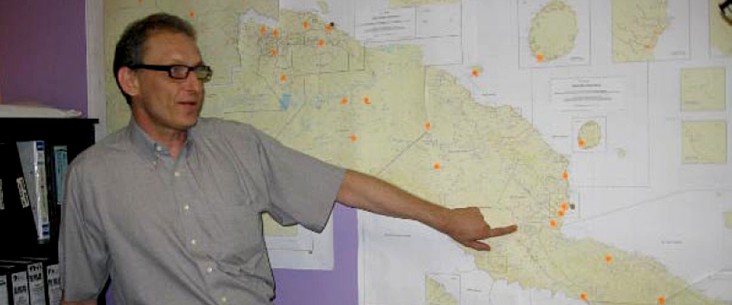
For Immediate Release
USAID, the World Bank, Asian Development Bank, and the Australian Agency for International Development are supporting the first-ever Integrated Bio-Behavioral Survey (IBBS) to help identify the drivers of the HIV/AIDS epidemic in Papua New Guinea (PNG).
PNG’s National Department of Health and USAID, through its implementing partner FHI360, are currently undertaking the survey led by Dr. Guy Morineau.
The IBBS will increase understanding of HIV transmission patterns, create more accurate HIV prevalence estimates, provide information on HIV demographic distribution and the behaviors (risk factors) associated with HIV, and assess the magnitude of stigma and discrimination at the regional levels.
The information will be used to design, implement and evaluate a more effective national response to the HIV epidemic to help mitigate the negative impact of HIV/AIDS on the lives of Papua New Guineans. It will also serve to advocate for required clinical services, including treatment for HIV/AIDS.
For many years, prenatal HIV surveillance data have been used to estimate HIV prevalence in PNG. However, the prenatal estimates are inadequate because they do not represent women and men of all ages, and rural communities. There has been no representative national sample that collected information on both HIV prevalence and the behaviors that put people at risk for HIV. Such data is critical to identify the drivers of the HIV/AIDS epidemic in the country.
As part of initial preparations for the survey, a protocol which included methodology and questionnaires was developed. In addition, mapping of sites for the representative national sample was completed.
Training of survey interviewers was conducted in Port Moresby from November 12-16, 2012. Two survey teams conducted field testing of survey methodology at two sites in the Central province (urban site at Goldie River Barracks, rural site in Manumanu village) during the week of November 19, 2012.
Several lessons were learned from the pre-test on survey logistics, equipment needs, community awareness, questionnaires used, remuneration of survey teams, and safety and security issues. The pre-test confirmed that the overall design of IBBS survey was solid and implementation was feasible.







Comment
Make a general inquiry or suggest an improvement.